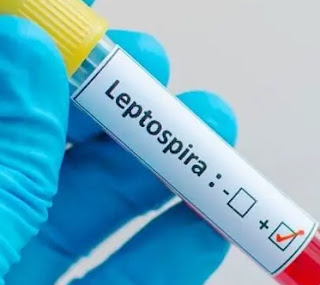Leptospirosis is a disease that can spread between people and animals. It is caused by infective species of the spirochete Leptospira. Leptospira interrogans and Leptospira kirschneri are the two most common species that cause disease in pets and human beings. Leptospira species are small, motile, spiral-shaped bacteria with hook-shaped tips that are capable of penetrating into broken skin or mucous membranes.
They spread either directly through contact with infected urine, bite wounds, or predation of infected animals, or indirectly through contact with polluted water, clay, food, or bed linens. They are also spread through direct contact with infected urine, bite wounds, or predation on infected wildlife. When environmental circumstances are ideal, some Leptospira strains can live for several weeks.
Acute kidney injury (AKI), hepatic inflammation, and vasculitis can be caused by pathogenic leptospires that rapidly multiply in the body. Other parts of the body may be compromised as well. Severe AKI in dogs with oliguria or anuria may necessitate renal replacement therapy, which may be unavailable or unaffordable to their owners. Both mechanical ventilation and renal replacement therapy may also be necessary for those with significant pulmonary bleeding. Vaccines are better than expensive treatments that don't always work because they're risky and costly.

Age, gender, and breed of dogs with acute leptospirosis have all been identified as risk factors, although the results have been inconsistent, and the factors may alter over time. Males, shepherd dogs, hounds, working dogs, and hybrid breeds have already been identified as being more vulnerable. Between 2000 and 2009, research in the United States of America using the Veterinary Medical Database found that dogs weighing less than 6.8 kg (15 lb) — particularly Yorkshire terriers — had the highest hospital prevalence of leptospirosis. A possible explanation is that small breeds were less frequently vaccinated due to concerns about vaccination side effects in small breeds, leading to fewer vaccinations.
Leptospirosis is a very contagious disease. As a result, if your dog is in danger of infection, you should consider administering him a vaccine.
Veterinarians say that dogs over 2-3 months old should get a leptospirosis vaccine to protect them. It is also advised not to combine the leptospirosis vaccine with any other vaccine.
Leptospirosis Vaccine for Dogs Pros
It safeguards your dog against a potentially dangerous strain of leptospira. It is a vaccination that has been approved by the FDA. The leptospirosis vaccination has been found to be safe by the Food and Drug Administration. The leptospirosis vaccination protects not just the person who receives it, but also those who are in close proximity to that person. It immunizes your dog against future diseases.
Leptospirosis Vaccine for Dogs Cons
Leptospirosis vaccines are composed of numerous components, each of which has a unique effect. A component may elicit a reaction in one person while being non-toxic to others. That is why different dogs exhibit varying degrees of vaccination adverse effects. Earlier versions of the leptospirosis vaccination were dangerous and had a variety of adverse effects.
The initial leptospirosis vaccination was even considered lethal. However, leptospirosis vaccines had made significant advancements by that time. The leptospirosis vaccination now has a low risk of side effects as a result of numerous modifications.







0 Comments
For comments please reply here.......